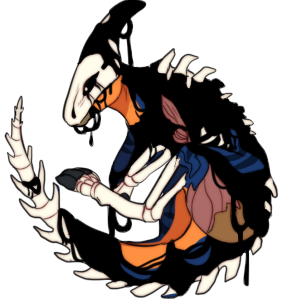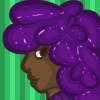
Mzuski were first discovered on a large, wild island, Nariyo, located in the Pacific Ocean. For years, the first settlers onto the island had no idea of their existence until one day one of the medium sized creatures wandered into the small town created along the shoreline. People were in awe of how domesticated this animal appeared to be and quickly adopted him as the beloved town mascot. Other Mzuskai slowly began to trickle in, each as curious and seemingly domesticated as the next. Now these intelligent creatures are beloved by all the inhabitants of Nariyo, becoming quite a popular household pet.
A B O U T
Quick Notes
Height - 12-14 Inches At Shoulders
Length: 48 - 50 Inches Nose To Tail Tip
Weight: 15-18 Pounds
Diet: Omnivore
Appearance: Mzuskai stand about a foot tall at their shoulders and have very elongated bodies, nearly four times their height. Their movements are much like of a ferret or weasle, bounding in extremely long paces. All Mzuski have long ears placed high on their heads to allow them to hear potiental prey underground. Their long, thick tails are used to aide them with balance in trees when stalking birds and other creatures. Although both males and females have sharp canines, only males have very long canines that protrude from under their upper lips. Mzuskai have a small
thumb like appendage on the underside of their paws and the rest of their
front toes look very similar to fingers, allowing them to hold and wield most objects
with ease. They can be found in a variety of colours, however it is rare for females
to sport brightly coloured coats.
Behaviour: Mzuskai can have nearly any type of personality. Most commonly, however, they are known to be feisty and inquisitive creatures. They are extremely intelligent and very good problem solvers. They are like cats in the sense that they seem to own their owners but generally have a more playful outlook on life such as ferrets or canines. It's not hard to aggravate a Mzuski by holding them for too long or preventing them from getting into things they shouldn't, however they have rarely been known to attack their owners or other humans.
Diet: Primarily carnivorous, Mzuskai prefer a diet rich in protein. Their most common kills range from smaller mammals such as mice and rabbits to snakes and insects. They have, on occasion, been known to kill other household pets such as cats and small dogs if not trained properly or raised with them. Fruits and nuts are a much more uncommon diet, but they can easily live a healthy lifestyle without meats.
A R T I S T S





















